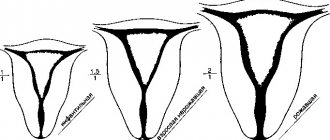Hello, dear readers of the KtoNaNovenkogo.ru blog. Parents are always very worried about the health of their child. They are especially wary of the first few years after birth.
Problems with mental development are not as obvious at first glance as a cough or runny nose with the flu.
Therefore, you need to understand the causes and signs of mental retardation, understand who the imbecile is, and whether it is possible to cope with it.
The concept of the definition of imbeciles and statistics of occurrence
The word imbecil is of Latin origin: imbecillus - this was the name in ancient times for weak, sick and non-viable babies, who were quickly disposed of.
Imbecility is a mental illness that arises as a result of a violation of ontogenesis (development of the body at the stages of formation). Imbecility is manifested by underdevelopment, first of all, of intellectual functions and clinically corresponds to moderate and severe mental retardation (according to the International Classification of Diseases, 10th revision).
It should also be noted that not only mental factors are highlighted, but also the appearance of the person himself, his characteristic appearance, and body composition. Delayed physical development, defects of organs and body parts (head, limbs, internal organs) are possible. Thus, from very early childhood, various disorders and developmental features appear. An imbecile, as a rule, has a limited vocabulary, represented by simple individual words. Concrete thinking, no imagination or figurative representation. Imbeciles do not have a wide range of knowledge, but can learn basic reading and arithmetic skills with good teaching.
The diagnosis of oligophrenia is made on the basis of IQ. An IQ score of 31 – 49 corresponds to moderate mental retardation, and 20 – 34 – severe. Mental age stops at 6–9 years for moderate cases, and 3–6 years for severe cases.
The actual number of patients is difficult to calculate within a single region of the country. This depends not only on the detection of the disease and diagnostic criteria, but also on the characteristics of culture, society, and the current education and upbringing system. Thus, the prevalence of mental retardation ranges from 1 to 3% of the total population.
Treatment of mental retardation
Depending on the cause of mental retardation and age, the following will help in treatment :
- pediatrician or therapist;
- neurologist (what kind of doctor is this?);
- speech pathologist;
- orthopedist;
- nutritionist;
- psychotherapist.
If a child develops cretinism due to a malfunction of the thyroid gland, the specialist will prescribe hormone therapy. It also helps with Down syndrome.
For phenylketonuria, a strict diet is prescribed, excluding foods that contain phenylalanine.
There are studies that have documented the positive effect of glutamic acid on improving intellectual function due to its effect on brain metabolism.
Mental retardation is not associated with psychoses or neuroses (what is that?).
But people with imbecility can develop anxiety or aggressive behavior because they cannot perform simple everyday tasks that others can do.
Therefore, cognitive-behavioral psychotherapy is an important part of treatment and support for the client. In parallel with the sessions, the specialist may prescribe medications, usually from a number of antidepressants.
Education (training) is a separate part of the therapeutic program.
Depending on the disorders and their degree, the child develops :
- movement coordination;
- ability to take care of oneself;
- distinguish external stimuli;
- skills needed in everyday life;
- correct speech articulation;
- basic labor skills.
The training can take place in:
- psychiatric institutions;
- specialized schools;
- at home.
Mechanism of development of imbecility
So, imbecility occurs due to a violation of ontogenesis. What lies behind these words? Who is an imbecile really?
Ontogenesis is the process of development of an organism with its own stages and phasing, the gradual complication of the previous structure. This applies not only to the physical component, but also to mental functions. Those. A person, before growing up and becoming an individual, goes through early, preschool, school and puberty periods (up to 18 years). Before this age, the formation of basic skills and abilities occurs. Mental development has a huge connection with heredity, genetics, constitution, and not just with the influence of environmental conditions (family, upbringing, education, society). Thus, for each person, the formation of the nervous system occurs at an individual pace.
Dysontogenesis is a breakdown, problem, difficulty at one of the stages of development, both physical and mental. Mental underdevelopment includes variants of mental retardation. This mechanism is based on brain damage and disruption of brain activity at the earliest stages of development. More rare variants of the problem are dysfunctions of peripheral analyzers, such as vision and hearing, or fundamentally incorrect parenting.
Mental retardation is an example of total underdevelopment of the mental sphere with a pronounced defect in the intellectual component. This is a fairly broad, capacious and correct, from a medical point of view, concept.
What is the difference between a moron and an imbecile?
In terms of the severity of the disease, imbecility is a preceding and more severe stage of moronism. They differ fundamentally in several respects:
- A moron (at the moment this term is not recommended for use in medicine due to its pronounced negative connotation) is able to master a job well and live independently, occasionally needing support. At best, an imbecile can study the beginnings of some simple activity, guided solely by the principle of imitation, and is unable to live independently.
- The level and severity of physical abnormalities in persons suffering from imbecility are significantly higher than in morons.
- Emotions in morons are better developed and more varied than in imbeciles.
- The interests of morons are focused on satisfying the food and sexual instincts and taking care of their appearance. An imbecile can only strive to satisfy basic needs.
Main causes of the condition
The etiology of imbecility, like any other variant of intellectual underdevelopment, includes a complex of factors. These are not only hereditary, but also external reasons. And there are really a lot of them!
- There are more than 400 harmful agents that can lead to disorders even in the womb. After all, the formation of the nervous system is a very delicate and sensitive process.
- Dangers can also occur at birth: hypoxia during childbirth, a long anhydrous period, entanglement of the umbilical cord, multiple pregnancy, infections, toxins, injuries, etc. The most common cause of pathology is maternal alcoholism during pregnancy. An “alcoholic fetus” syndrome is formed, which disrupts the formation of brain cells and subsequently leads to a weak state.
- Heredity and genetic predisposition are also not at the bottom of the list of causes of mental underdevelopment. Chromosomal diseases and gene mutations produce their negative results, being passed on from generation to generation. Moreover, only a small part of them can be identified by cytogenetics.
- The effect of environmental factors: the child’s upbringing and living conditions do not meet the necessary standards, which is a huge obstacle to the development of skills and normal physiological processes.
Types of the disease and causes of its occurrence
Imbecility, what is it? When examining this issue, it should be said that the disease in question is divided into four types, which differ in the reasons that provoked the development of the pathology. The hereditary type of the disease is associated with the presence of defective genes received from parents. The intrauterine type of pathology develops against the background of bacterial or viral lesions of the fetus during intrauterine development. There is also a special form of delayed intellectual development, provoked by pathologies in the functioning of the brain or endocrine system.
Along with external signs of underdevelopment of intelligence, primitive speech and underdeveloped learning abilities are observed
In addition, there is a type of imbecilism that is caused by asphyxia, brain hypoxia or birth injuries. This form of pathology can occur against the background of traumatic brain injury or serious infectious diseases in infancy. According to experts, there are many different factors that provoke disruptions in mental development. These factors fall into three categories:
- The first category is internal factors, the list of which includes poor heredity, genetic disorders and chromosomal abnormalities.
- The second category is external factors, among which we should highlight the presence of acute infectious diseases during gestation, or prolonged use of narcotic drugs by the child’s parents. This category of factors also includes traumatic brain injuries received during birth.
- The third category is the combination of the influence of external and internal factors, which significantly increases the risk of developing imbecility.
Stages (severity of pathology)
There are complicated and uncomplicated cases of mental underdevelopment. Also, clinically, imbeciles can be divided into 2 categories regarding the type of temperament: torpid - inhibited, apathetic, indifferent to everything and erectile - easily excitable, irritable, active.
The stages of imbecility are determined according to the level of intellectual development of a person.
- Mild imbecility correlates with an IQ in the range of 35 – 49, which refers to the mental age of 6 – 9 years. Thinking is devoid of abstraction, there is no imagination. Physical developmental defects may be present. A person can master simple self-care skills, perform some simple arithmetic operations, and read.
- The severe stage of imbecility is characterized by an IQ of 20–34, age at the level of a 3–6 year old child. Fine motor skills of the fingers are poorly developed, which makes it impossible to care for oneself. The vocabulary is poor, the words are separate and specific. Such people require constant care and monitoring of their condition.
Nature of the pathology
Disturbances in the higher functions of brain activity lead to pathologies in the development of the human personality. A distinctive feature of this congenital disease is the image of an “eternal child”. As a rule, imbeciles master only primitive life skills. Many of the children with this disease easily make contact with others and show different reactions when approached.
Problems associated with pathology of brain activity make it difficult to master complex sciences. This feature can be clearly seen in the example of mathematics. A person suffering from this disease is able to fold only objects that have a certain specificity. Adding or subtracting simple numbers in the head is an impossible task for imbecile children. Also, children with congenital brain diseases have problems with learning to read and write. Even in adulthood, most people only read syllables. The ability to express one's thoughts in writing is usually limited to monosyllabic phrases.
Most patients experience difficulties in mastering social and everyday skills. Many imbeciles cannot dress or eat food on their own. In order to teach a child to perform various actions, they should be repeated over a long time.
The diagnosis of “imbecilism” leaves a peculiar imprint on a person’s appearance . According to statistical data, most patients have a violation of the proportions of head size. It can either significantly exceed or decrease the norm. External signs of imbecility include deformed facial bones, a “petrified” look, earlobes attached to the head and an incorrect bite. Focal neurological lesions lead to problems related to fine motor skills. Most people with imbecility have problems with the functioning of the musculoskeletal system, which is expressed by poor coordination of movements. To assess the extent of the problem, imagine that you cannot cope with such a habitual action as tying your shoelaces.
Imbecility is characterized by a congenital or acquired mental development defect in early childhood, which does not increase throughout life (but can be partially corrected)
In simple terms, this disease is characterized as “freezing” at the age of seven. Parents of people with the problem in question are perceived by the latter as an object of inexhaustible love. Imbeciles start their own family only in isolated cases. As a rule, their social circle is limited only to close relatives and members of rehabilitation groups.
The vocabulary of people with imbelicism is limited to a few hundred simple words that are used only when necessary. In speech, only monosyllabic sentences consisting of several phrases are used. The development of thinking stops at a primitive level, which is reflected in emotional manifestations. Most people with this pathology experience a complete absence of the volitional factor. If usual living conditions change, the patient may experience a feeling of strong fear. Lack of initiative, passivity and a high degree of suggestibility contribute to the high influence of the opinions of others on the behavioral model. Based on the above, we can conclude that throughout his life the patient needs constant supervision and control from relatives.
The patient's horizons have rigid boundaries, and almost never exceed the framework of satisfying simple instincts. Doctors say that many patients do not feel full, which forces them to eat double portions.
A person with this problem should constantly learn basic rules of behavior.
In the absence of parental and medical supervision, imbeciles can become a danger to themselves and those around them . Each holder of this diagnosis experiences difficulties associated with sexual disinhibition, which are expressed in the form of a lack of self-control of sexual desire. Violations in this area can lead to antisocial behavior, harassment of the fair sex and sexual crimes.
Clinical manifestations of imbecility
Imbeciles have concrete thinking. It is primitive, the vocabulary is sharply limited. Memory, attention, imagination, volitional component are underdeveloped. Higher cognitive activity with imbecility is impossible due to cognitive deficit.
From the first years of life, insufficiency of thinking processes manifests itself in impaired cognitive activity. Fine motor skills of the hands develop poorly, visual and auditory reflexes form later and are distorted. At 2–3 years of age, children with intellectual disabilities are characterized by slow mastery of maintenance skills, lack of cognitive interest in the environment, and primitive play with objects in the form of manipulation. Such children have difficulty finding a common language with their peers and do not understand the rules of games.
In preschool age, children with imbecility are more attracted to active, unfocused games. Emotions are primitive. When entering school life, intellectual problems are increasingly expressed. Attention, memory and concentration are reduced, studying is difficult.
Imbeciles understand the speech of the people around them, but they themselves operate only with a small set of words within a few dozen concepts. The form of speech is simple in the form of short phrases, the grammatical structure is incorrect. In severe cases, speech is absent, and the speech of surrounding people is not perceived.
Persons with a mild form of imbecility can be taught simple self-care skills, simple work activities, basic arithmetic operations and reading.
The learning process must necessarily be accompanied by positive motivation for such individuals, because imbeciles feel a connection with their family and rejoice in their praise. This is a very defenseless contingent of people; they are naive and gullible, passive in making decisions, and prone to imitate and adopt the behavior of others. It is important to create a favorable environment and protect them from antisocial company.
Imbecile - signs
What an imbecile looks like - noticeable deviations in physical development are common in these people:
- deformation of the head, face;
- impaired development of limbs;
- paresis up to paralysis;
- hypogenitalism.
Signs of imbecility in behavior and mental development appear from early childhood. Such children have an extremely limited vocabulary, consisting mainly of verbs and nouns; form short, grammatically incorrect phrases. The thought processes of imbeciles are straightforward, there is no imagination, and the amount of information about the world around them is very limited.
To understand who an imbecile is, it should be borne in mind that they can be taught the initial level of writing, counting and reading and basic self-service skills. In behavior, those suffering from imbecility can be both aggressive and good-natured. According to their emotional state, patients are divided into two types:
- torpid - sluggish, indifferent to the surrounding reality;
- erectile - active, mobile.
Diagnostics
When assessing mental abilities, it is important to rely not only on clinical data, but also on an objective assessment of intelligence level. The Wechsler test is widely used, and the generally accepted measure is intelligence quotient or IQ. In Russia there is a special adapted test for children aged 5–16 years. For younger children, there are various methods for determining the level of neuropsychic development.
At the same time, a clinical determination of the completeness of vocabulary, memory strength, distractibility, the presence of behavioral disorders is carried out, and the level of self-care skills is assessed.
Differential diagnosis with other similar diseases
A huge number of hereditary diseases with genetic abnormalities and metabolic disorders must be identified first.
Differentiation should be made with organic brain lesions (due to injury, intoxication, disease).
It is necessary to separate imbecility from dementia. The main difference is that with dementia there is a decrease in cognitive functions up to the complete mental and physical disintegration of the personality (senility), and with imbecility these functions are underdeveloped.
Treatment and correction of the condition
The goal of treating imbecility is to reduce the severity of symptoms and socialize the patient. Correction of the condition is carried out using drug treatment with nootropic drugs. They saturate the brain with oxygen, nourish neurons and improve cognitive function. These include, for example, drugs such as Pantogam, Pantocalcin, Piracetam.
In the presence of behavioral disorders, it is possible to use tranquilizers in short courses of up to 14 days and behavior correctors (Sonapax, Neuleptil). Antipsychotic drugs in small dosages act as sedatives and improve night sleep.
In the presence of convulsive syndrome and mood swings, Carbamazepine and Valproic acid are used.
Forecast of imbecility
The dynamics of the condition and prognosis for imbecility depend on the level of intellectual underdevelopment and pathology of personal functions. In mild cases, in the absence of deep defects and behavioral disorders, such people can be fully compensated and safe socially. Thus, about 66% of patients can remain productive in well-organized conditions.
Negative dynamics of the disease are characteristic of severe cases of imbecility. Usually the disease is accompanied by concomitant physical developmental defects, neurological disorders, and brain abnormalities. In the absence of drug treatment, psychological and correctional work, in an unfavorable environment, the condition may worsen. Decompensation can occur during periods of age and gender crises. These conditions may be accompanied by affective disorders with irritability, aggression, neuroses, depression, disinhibition, and behavioral disorders.
It is necessary to train such persons in specialized correctional educational institutions, to create a calm and friendly atmosphere in the team.
What should parents do?
Raising a child with an average level of retardation (imbecility) is not an easy task. Often parents themselves need psychotherapy.
The specialist helps to understand that such children need constant support, understanding and a patient attitude. Only then can you create a calm and comfortable life for your baby.
Relatives should not get hung up on the amount of knowledge from the school curriculum. The main place should be occupied by the desire to give love and warmth to the child .
In such conditions, it is necessary to gradually teach him household and work skills. Such children are willing to do handicrafts and help around the house if they are adapted to this.
Conversations on various simple topics, watching movies and TV shows together, reading books by parents - such leisure time also contributes to development. Even if children perceive information in their own way.
You need to remember that if a child behaves aggressively towards mom and dad, then you shouldn’t take it personally . Because everyone is in a bad mood, and negativism often prevails in such children.








